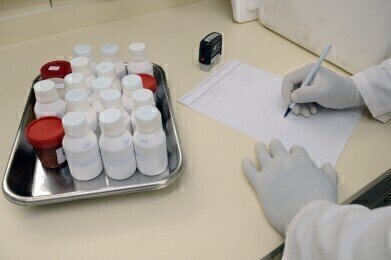News & Views
What is Zmapp?
Sep 15 2014
Zmapp is the latest experimental biopharmaceutical drug aimed at the treatment and prevention of the deadly Ebola virus. However, the drug, which is as yet untested on humans, is neither a cure nor a vaccine in the traditional sense. Instead, it is a mixture of genetically-engineered antibodies, designed to neutralise the virus and offer passive immunity to it.
What is Ebola?
The Ebola virus disease (EVD), sometimes known as Ebola haemorrhagic fever (EHF), but more commonly just as Ebola, is a disease occurring in humans and other primates which attacks the human immune system and obstructs the production of antibodies. Antibodies are key in the body’s defence against bacteria, meaning it is very important in the prevention of, and recovery from, disease and illness. Symptoms begin with fever, muscle discomfort, sore throat and migraines, followed by diarrhoea, vomiting and rashes and damage to the liver and kidneys, and can finish terminally with both internal and external bleeding.
The latest outbreak of the disease occurred on the 6th December 2013 in Guinea, West Africa, and has been dubbed the 2014 West Africa Ebola outbreak. It is both the first found in this area and the largest ever recorded, having claimed 2,296 lives among a suspected 4,293 cases, though the World Health Organisation (WHO) fear these figures may actually be much higher. Recently, we compared the death rates due to Ebola against other deadly infectious diseases - despite the shocking headlines about Ebola, you may be surprised by the results.
The development of Zmapp
The immunising serum is being developed by Mapp Biopharmaceutical Inc., which is a collaboration between various different companies from San Diego and Toronto and both the US Government and the Public Health Agency of Canada. In 2013, Mapp released a research paper which explained in detail the development of Zmapp.
The drug itself is comprised of two different serums. The first is MB-003, which was tested on mice, developed in plant-life and then tested again on rhesus macaques monkeys. The study showed that 43% of the monkeys infected with Ebola survived after being dosed with MB-003, one or two days after infection.
The second serum is called ZMAb and was developed by the Canadian company involved in the collaboration, Defryus. Acting on similar principles, Defryus also tested their serum on rhesus monkeys and found that 100% of the infected primates survived when treated within 24 hours. Of those treated within 48 hours, 50% survived.
The future of Zmapp
The latest outbreak of Ebola came too soon for Zmapp to be used to its full potential, since it had to be met with FDA approval. To achieve this, a drug must pass three different stages of human trials. With Zmapp still in its infancy, it’s unlikely the drug will be certified and widely available for several years more.
However, the West African outbreak prompted the uncertified use of the serum in Guinea. Doing so brought the drug to the forefront of public consciousness, since previously it had been a fairly secret undertaking. Results were inconclusive, though those administered with the drug did survive, it is unclear whether their survival was merely coincidental.
Furthermore, the current supply of the drug was exhausted in August of this year. Production of more batches is ongoing, but a timeframe has not been forthcoming.
Digital Edition
Lab Asia 31.2 April 2024
April 2024
In This Edition Chromatography Articles - Approaches to troubleshooting an SPE method for the analysis of oligonucleotides (pt i) - High-precision liquid flow processes demand full fluidic c...
View all digital editions
Events
May 05 2024 Seville, Spain
InformEx Zone at CPhl North America
May 07 2024 Pennsylvania, PA, USA
May 14 2024 Oklahoma City, OK, USA
May 15 2024 Birmingham, UK
May 21 2024 Lagos, Nigeria












.jpg)





